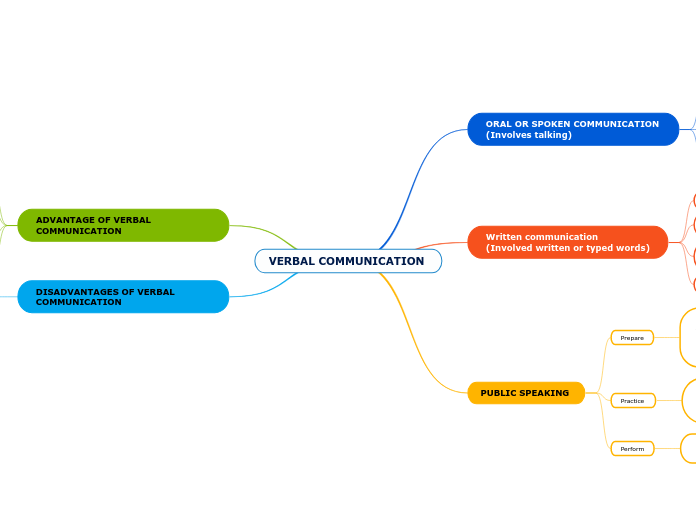VERBAL COMMUNICATION
ORAL OR SPOKEN COMMUNICATION
(Involves talking)
Face-to-face conversation: when you see the listener.
For example, group discussion, talk with friends/family members.
Talking on a phone: personal and official communication.
Example, phone conversation should start with hello, talking and listening to each other and end with bye.
Classroom teaching, business meeting and public speeches are examples of oral communication ( one person talks to many at once)
Written communication
(Involved written or typed words)
Writing on paper: letters,notes ,etc.
SMS ( Short Message Service ): these can be send through a phone to a person/group.
Using email to share news, thoughts, document and files( photo, video,music). Email can be used to send (gp/ personal).
Printed books and newspapers.
PUBLIC SPEAKING
Prepare
-Think about your topic.
-Think about what your listener need to know about the topic.
- Think about the best way to make your listener understand.
-Write what you plan to say.
Practice
- Practice by yourself first. talk infront of a mirror
- Talk in front of your family/ friends and ask what they think.
- Speak clearly, loudly and the right speed( not to fast or slow)
Perform
- Take a few deep breaths if you feeling nervous
- Think about what have you prepared and start speaking confidently.
ADVANTAGE OF VERBAL COMMUNICATION
Easy and quick
Can say what you want and get quick response
Easier form of communication when you want to exchange idea
Change the way you communicate base on person
DISADVANTAGES OF VERBAL COMMUNICATION
Since verbal communication depends on words, sometimes the meanings became confused and difficult to understand.
